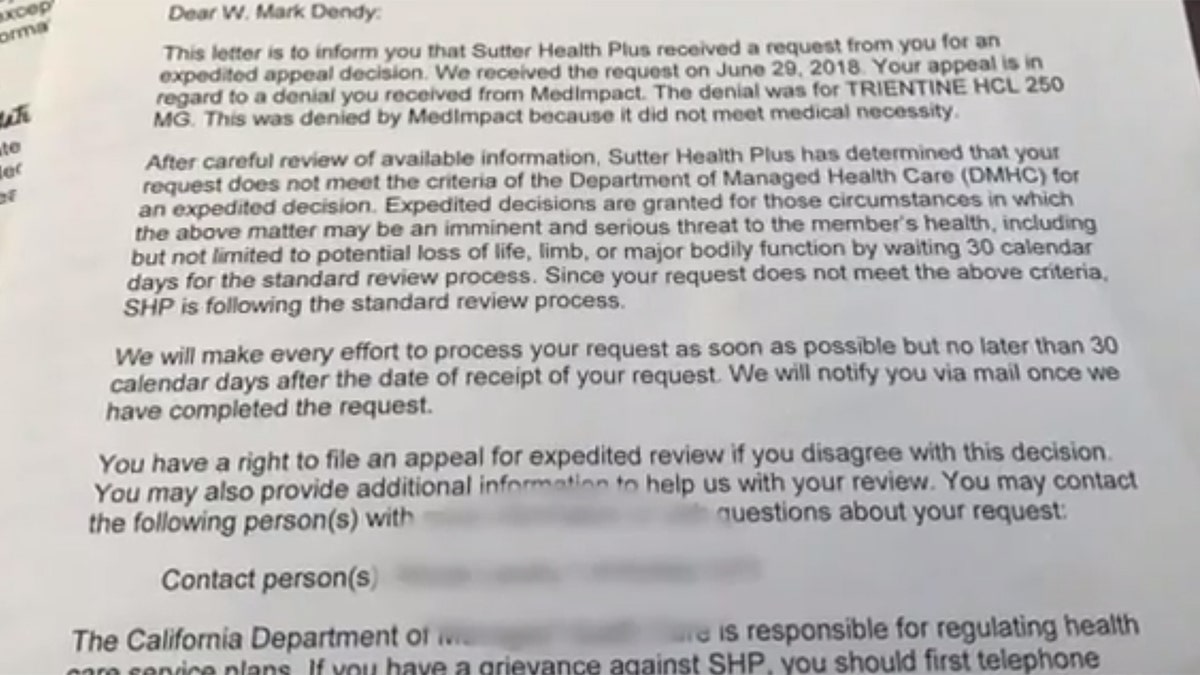
Mark Dendy, a tutor at Brightwood College, was informed in July that his insurer would no longer cover his potentially life-saving medication. (Fox 40)
A California biology tutor with a rare, life-threatening disorder said that he is “going to die a slow death” without a life-saving medication that his insurance company stopped covering in July. Mark Dendy, 64, was diagnosed with Wilson’s disease at 27 and only expected to live until age 30, Fox 40 reported.
The genetic disorder causes copper to accumulate in the liver, brain and other vital organs and is typically diagnosed between the ages of 5 and 35, according to the Mayo Clinic. Symptoms can include fatigue, lack of appetite, yellowing of the skin or eyes, fluid buildup in the legs or abdomen, problems with speech, swallowing or coordination and uncontrolled movements or muscle stiffness. Without treatment or intervention, the copper accumulates and can reach potentially life-threatening levels.
“The prognosis was I’d be dead by the time I was 30,” Dendy told Fox 40.

Dendy said without the medication, he will "die a slow death." (Fox 40)
But doctors found a combination of drugs that have kept his organs healthy, including Bausch Health Companies' Syprine, which he has been taking for the past 12 years. According to the news outlet, since 2015 the cost for one month’s supply of the medication has skyrocketed from $600 to $21,000, and Dendy’s insurer, Sutter Health Plus, sent him a denial letter in July after deeming the drug not medically necessary for his illness.
“This particular medication is in the Sutter Health Plus formulary and is covered if considered medically necessary,” the insurance company said in a statement to Fox 40.
NJ MAN DIAGNOSED WITH MENINGITIS FOLLOWING ROUTINE ROOT CANAL
A Bausch Health Companies spokesperson said there are several patient assistance programs offered to combat the spike in price.
"Our first priority is that every patient has access to the medicines they need," the spokesperson said, in an emailed statement to Fox News. "The list price of a medicine is not the price that patients pay, and we have carefully designed our patient support programs to help make out-of-pocket costs affordable. For commercially-insured patients, our co-pay assistance program reduces out-of-pocket costs to $5 per month. In addition, uninsured patients with incomes less than 500 percent of the federal poverty level may be eligible for free medicine under our patient assistance program. That income threshold equals more than $125,000 per year for a family of four.
It is not clear if Dendy qualifies for either, but he has since filed an appeal with his insurer. Dendy said he doesn’t know how many options he has left if the insurer continues to deny coverage, nor how much time he has left to wait.
“Without the medicine, I’m going to die a slow death,” he told Fox 40.








































